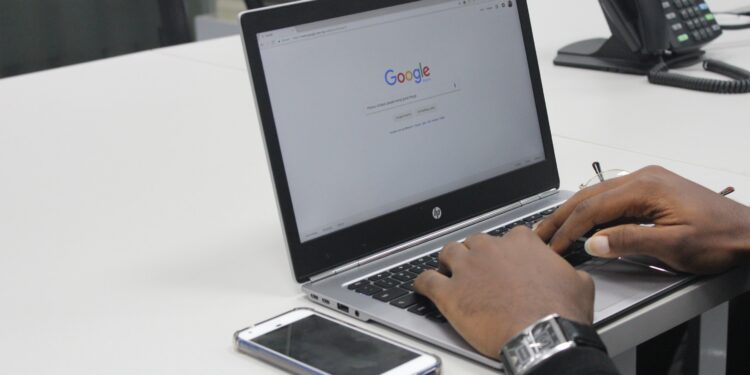Credit: Unsplash/CC0 Public domain
Conventional wisdom suggests that searching online to assess the veracity of misinformation would reduce trust in it. But a new study by a team of researchers shows that the opposite is true: seeking to assess the veracity of fake articles actually increases the likelihood of believing misinformation.
The results, which appear in the journal Natureoffer insight into the impact of search engine results on their users, a relatively understudied area.
“Our study shows that searching online to evaluate news increases belief in widely popular misinformation – and by notable amounts,” says Zeve Sanderson, founding executive director of the Center for Social Media and Politics (CSMaP). New York University and one of the authors of the article.
The reason for this result can be explained by search engine results: in the study, the researchers found that this phenomenon is concentrated in individuals for whom search engines return lower quality information.
“This highlights the danger that “data blanks” – areas of the information ecosystem that are dominated by low-quality or outright false news and information – could play a significant role in the research process. line, leading to a low return on investment. credible information or, more alarmingly, the appearance of non-credible information at the top of search results,” observes lead author Kevin Aslett, assistant professor at the University of Central Florida and affiliated research professor at CSMaP.
In the newly published Nature In this study, Aslett, Sanderson and their colleagues investigated the impact of using online search engines to evaluate false or misleading opinions, an approach encouraged by technology companies and government agencies, among others.
To do this, they recruited participants via Amazon’s Qualtrics and Mechanical Turk, tools frequently used in conducting behavioral science studies, for a series of five experiments and with the aim of evaluating the impact of a common behavior: online search to evaluate the news (SOTEN).
The first four studies tested the following aspects of online search behavior and impact:
- The effect of SOTEN on belief in both false or misleading and true information directly within two days of an article’s publication (popular fake articles included articles about COVID-19 vaccines, procedure impeachment of Trump and climate events)
- Can the effect of SOTEN change an individual’s evaluation after having already evaluated the veracity of a news story?
- The effect of SOTEN a few months after its publication
- The effect of SOTEN on recent news on an important topic that has received significant media coverage: in the case of this study, news regarding the COVID-19 pandemic.
A fifth study combined a survey with web-based tracking data to identify the effect of exposure to low- and high-quality search engine results on belief in misinformation. By collecting search results using a custom web browser plug-in, researchers were able to identify how the quality of these search results may affect users’ belief in the disinformation being evaluated.
The credibility ratings of the study sources were determined by NewsGuard, a browser extension that rates news and other information sites to guide users in evaluating the trustworthiness of the content they provide. ‘they find online.
Across all five studies, the authors found that searching online to evaluate news led to a statistically significant increase in belief in misinformation. This happened shortly after the false information was published or months later.
This finding suggests that the passage of time – and apparently fact-checking opportunities to enter the information ecosystem – does not diminish the impact of SOTEN on increasing the likelihood of believing that fake news is true. Furthermore, the fifth study showed that this phenomenon is concentrated among individuals for whom search engines return information of lower quality.
“The findings highlight the need for media literacy programs to base their recommendations on empirically tested interventions and research engines to invest in solutions to the challenges identified by this research,” concludes Joshua A. Tucker, professor of policy and co-director of CSMaP, another of the authors of the document.
Other authors of the paper included William Godel and Jonathan Nagler of NYU’s Center for Social Media and Politics, as well as Nathaniel Persily of Stanford Law School.
More information:
Kevin Aslett, Online searches to assess misinformation can increase its perceived truthfulness, Nature (2023). DOI: 10.1038/s41586-023-06883-y. www.nature.com/articles/s41586-023-06883-y
Provided by New York University
Quote: Assessing the veracity of fake news through online searches increases the chances of believing misinformation: study (December 20, 2023) retrieved December 20, 2023 from
This document is subject to copyright. Apart from fair use for private study or research purposes, no part may be reproduced without written permission. The content is provided for information only.



